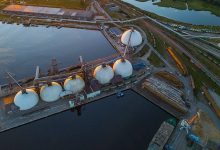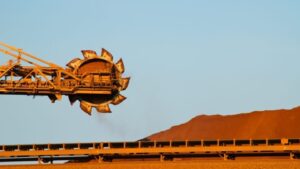The NSW Independent Planning Commission has been told that the proposed Narrabri gas development would lead to households and businesses paying higher gas prices, in a submission made by the Institute for Energy Economics and Financial Analysis (IEEFA).
An analysis prepared by IEEFA suggests that the price of gas would have to rise to make the Narrabri project commercially viable, and prices would need to be substantially higher than current spot prices, which have been suppressed by a fall in international gas prices triggered by a global drop in industrial demand.
Gas analyst Bruce Robertson told theIPC that the Narrabri gas project was uneconomic, and if project developer Santos was to make a profit from the project, then gas prices across New South Wales would have to rise.
“Narrabri gas will be high cost gas to produce at $8.50 a gigajoule, meaning gas consumers are likely to see higher, not lower gas prices if the fields are approved,” Robertson said.
“Even the gas industry is saying they can’t deliver gas at the government’s desired $4 a gigajoule, which is the only way gas, and therefore electricity prices will drop.”
Gas company Santos is proposing to develop the Narrabri gas project in central New South Wales, which it says will be developed progressively over the next 20-years and could see as many as 850 gas wells established.
The IPC is set to hand down its decision on whether to grant planning approval to the Narrabri gas project on Wednesday.
Concerns have been raised by opponents, who say the project will contribute to rising greenhouse gas emissions from the gas industry, as well as failing to deliver any reductions in the cost of gas to Australian consumers.
The analysis produced by IEEFA suggests that the cost of production across the Narrabri gas fields could be around $6.40 per gigajoule, with an additional $2.10 needed to cover the cost of transporting the gas to demand centres like Sydney.
“Consumers will be paying for new pipelines in addition to the cost of production at the fields,” Robertson said.
“This deal is a financial red flag, to both electricity consumers and taxpayers who will wear the cost of expensive gas infrastructure investment under the Federal government’s planned subsidies to the industry.
“The gas industry has been suffering write-down after write-down, even before the pandemic hit. They are sinking hand over fist yet the government is intent on throwing public money to an industry that itself says it can’t deliver cheap gas to Australian consumers.”
In an address to the IPC in July, the CEO of Santos, Kevin Gallagher, said that the company would deliver ‘competitively-priced’ gas to New South Wales consumers, by reducing the amount of gas that needed to be transported form Queensland.
“Combined with proximity to New South Wales customers, this will make Narrabri gas very competitively-priced, delivering a new source of gas supply and helping to put downward pressure on gas prices,” Gallagher told the commission.
“The Australian Competition and Consumer Commission has found that customers in southern states, including New South Wales, pay $2 to $4 per gigajoule more for gas because of transportation costs alone.”
“That could account for 20 to 40% of the delivered gas price,” Gallagher added.
Addressing this point, IEEFA said that the development of a higher cost gas development wouldn’t help to drive down gas prices, particularly in an Australian gas market that is already well supplied, but is seen large volumes of gas being sold into the export market.
“You can’t produce high cost gas and lower the cost of gas. It simply doesn’t make sense,” Robertson said.
“Australia has plenty of gas to supply its own needs, but gas companies have been sending this overseas since 2014, and since then we have suffered massive increases in our gas and electricity bills, creating hardship for lower income homeowners and reducing gas demand by 14% for manufacturers because it has been too expensive to operate, with many shutting up shop.”
“The economics of the gas industry is broken, and opening Narrabri will mean again, the Australian consumer, manufacturer and taxpayer will wear the cost. The government needs to enact a domestic gas reservation to ensure low prices and surety of supply for domestic consumers,” Robertson added.










